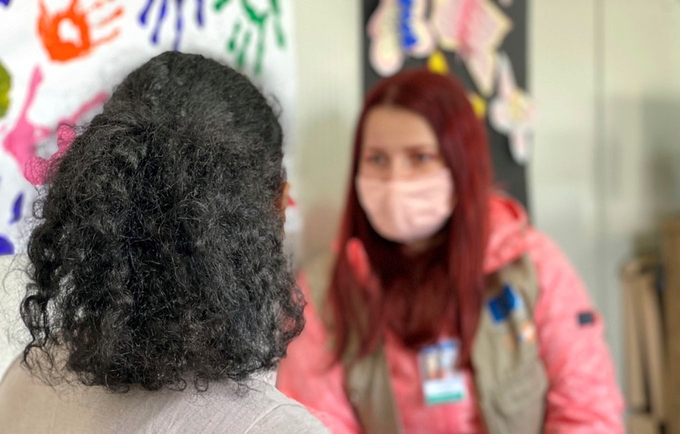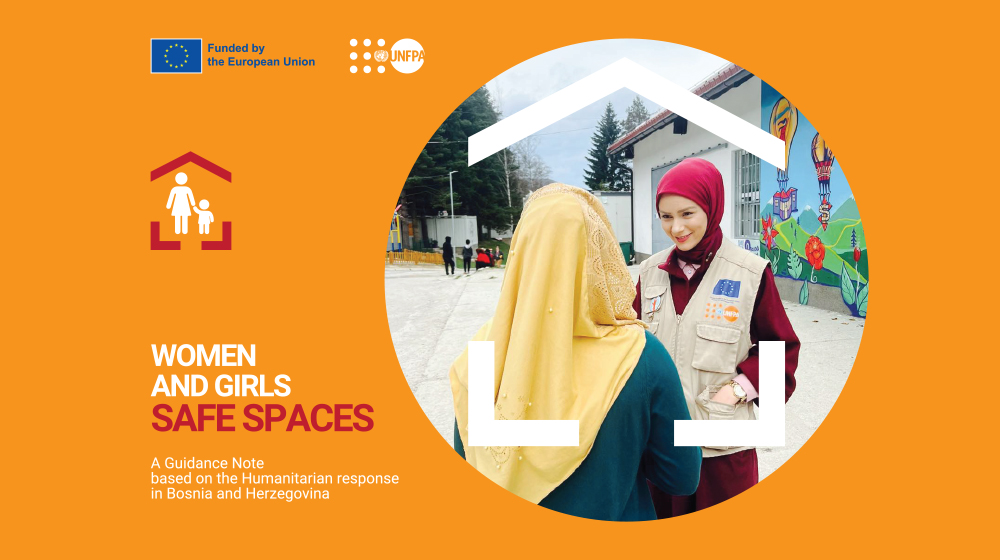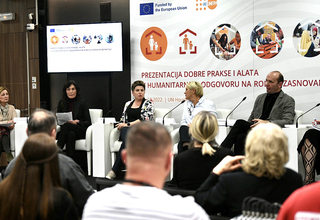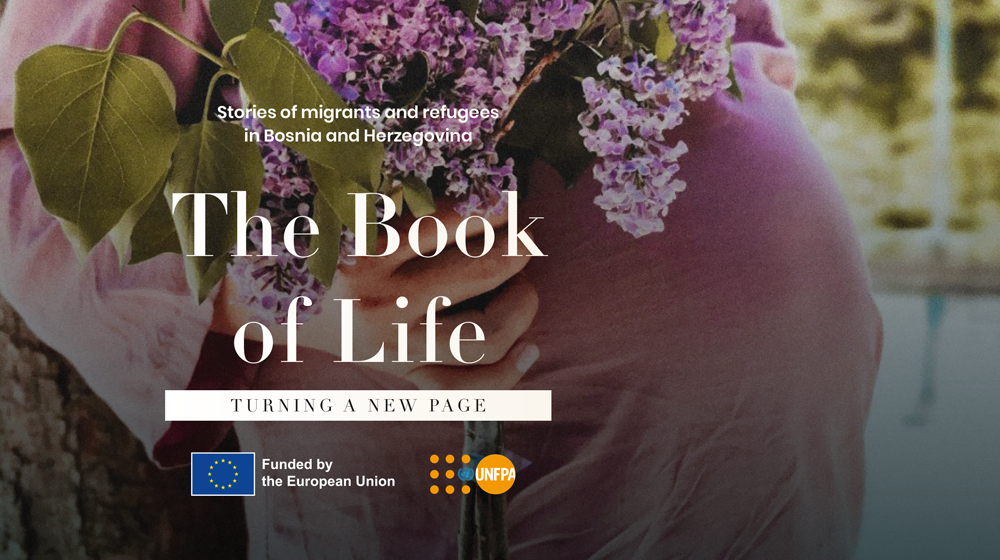BIHAĆ, Bosnia and Herzegovina — Life was very hard, and dangerous, for Selam* and her family in their home country located in the horn of Africa.
“My father was killed when I was only 5 years old,” she says. “If you do not agree with the government, they can kill you. It can happen on the street, in front of everyone.”
Now 23, Selam recalls vividly the difficulties of her childhood. Electricity was available just a few hours each day, drinking water was only delivered every two or three weeks, and internet access was an unfamiliar luxury. Fear was a constant under her country’s dictatorial regime, which requires both women and men to serve unlimited stints in the military.
As a result of these conditions, more than 10 per cent of the country’s entire population has fled, including Selam and her aunt. They left when Selam was only 9 so that she would not have to enter mandatory military service after finishing school.
“I fled since I did not want to be forced to serve in the army, which can last for years and some people never return,” Selam says. “But when you leave illegally, there is no going back – returning would mean death.”
Selam’s flight took her through multiple countries over many years, and eventually onto a migration route that has brought some 70,000 equally desperate migrants and refugees into Bosnia and Herzegovina since this influx began in January 2018. Of this number, some 7,000 remain in the country, including Selam.
She is one of 3,300 female refugees and migrants to date who have received support from three UNFPA-run Women and Girls Centres in Bosnia and Herzegovina currently funded from the UNFPA Humanitarian Fund, and the European Union. They give young migrant and refugee women and girls a safe space in which to engage with each other, to learn and to be empowered. The centres provide culturally appropriate psychosocial support, hygiene and dignity kits, and sexual and reproductive health services.
“Thanks to Women and Girls Centre, my very good friend, who is pregnant and is traveling with me, finally had the opportunity to go to the gynaecologist,” says Selam. “The last time she was examined in Greece, we were afraid for her baby. Now that we know everything is fine, we feel calm and secure. For the first time, I can ask someone questions that trouble every woman without shame or embarrassment.”
Selam is currently living in Bihać, at a temporary reception centre for migrants and refugees where one of UNFPA’s Women and Girls Centres is located. There, she has met another woman from her home country who is also receiving support after struggles at home and a difficult migration journey.
“When I was 17, I was married to a man 10 years older than me who I didn’t know. My parents chose him for me, and I had to get married otherwise I would have been forced to go into the military,” says Lydia, a 32-year-old mother of four. “There is no time limit in my country for service in the army; my husband has been serving for 20 years, and some men spend their whole lives in the army.”
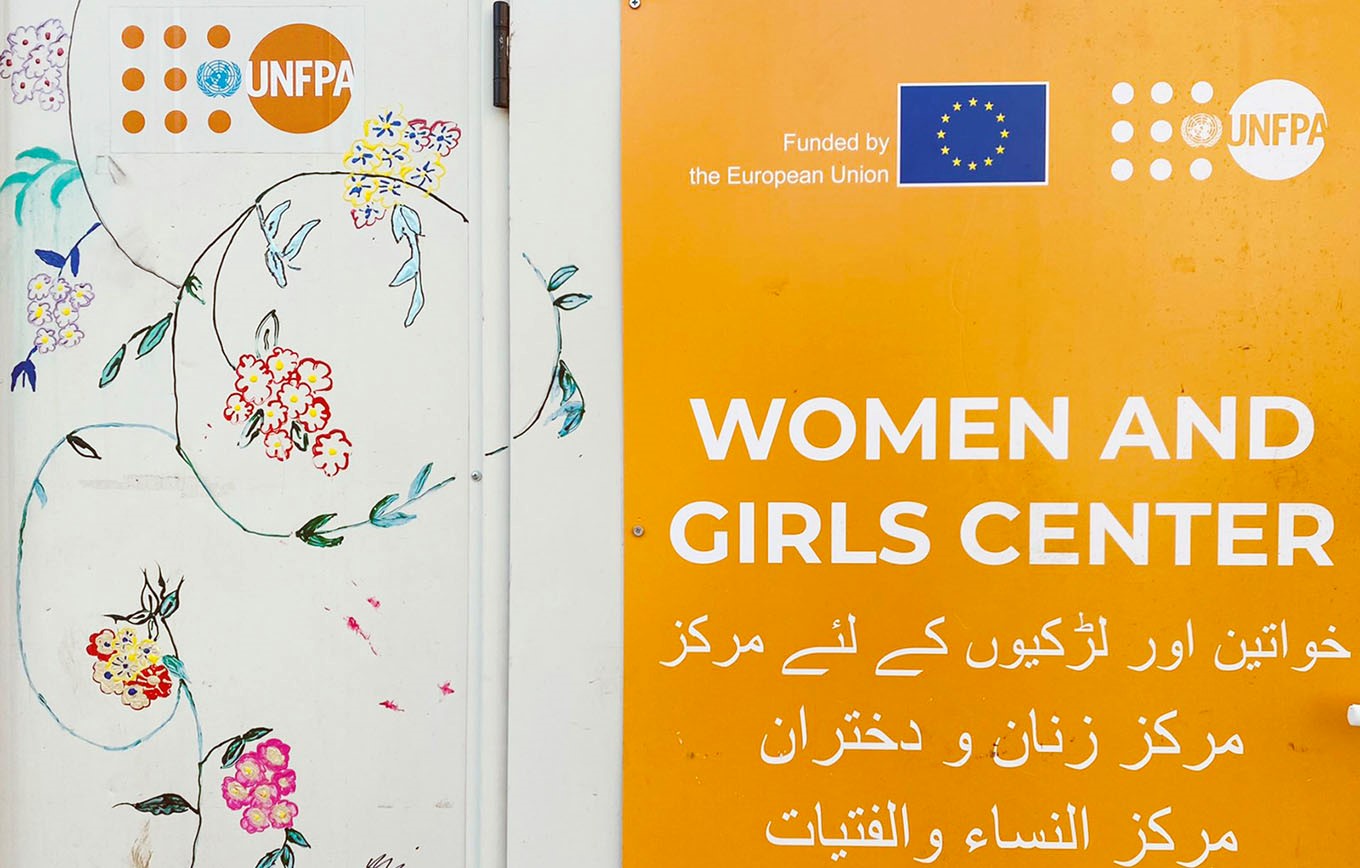
Already struggling to meet her children’s basic needs, Lydia became too afraid to stay in her home country after her husband got locked up in a military prison on unspecified charges. “The situation in my country is very difficult, we have no rights there,” she says. “I hated my life and I don’t want my children to live like that.”
Lydia decided her only option was to try and make a better life elsewhere, somewhere safe where she could eventually send for her children. She first crossed the border into a neighbouring country, where she worked illegally as a night-shift hotel cleaner for a year. From there, she managed to get to Turkey, and then on to Greece, but she says the journey was a difficult and painful one.
“I don’t want to remember those times, because it makes me start crying right away,” Lydia says. “We walked for six days, slept outside, froze, had nothing to eat.”
Selam also first fled to the same neighbouring country, where she went to school and learned English. With assistance from a brother and sister who live in Germany, Selam then continued her journey alone, before meeting her current boyfriend along the migration route. The young couple spent two months in Turkey and five months in Greece before travelling through North Macedonia, Montenegro and Serbia and ending up in Bosnia and Herzegovina.
“It was much easier to travel with my boyfriend because I felt safer,” says Selam, adding that many migrant and refugee women are raped during their journeys. The trip is dangerous even from the very beginning, she says, since police at the borders between her country and its neighbours can shoot and kill anyone they see trying to cross illegally.
“I am very glad that there is a psychologist here at the [women and girls] centre, someone I finally feel like I can trust to talk to about my life and all the difficult experiences I’ve been through,” Selam says. “But some things I don’t want to remember because it triggers heavy emotions in me, and nobody is forcing me to share what is too painful for me to talk about.”
Both Selam and Lydia visit the UNFPA Women and Girls Centre every day and regularly talk to a psychologist and participate in other activities there. The centre has become like a home for them while they are separated from their families. Selam has not seen her mother, sisters and brother for 14 years. Lydia can only talk to her children occasionally, due to the expensive cost of calls and limited internet access in her home country.
“I hope we will be together again, in some safer place in the world,” Lydia says. “And I hope that wherever I am, I will have someone with whom I can talk like I do in this centre. That has made it easier for me to deal with all that I went through and it gives me the strength to continue to fight for my children.”
* Names have been changed to protect privacy and identity.
